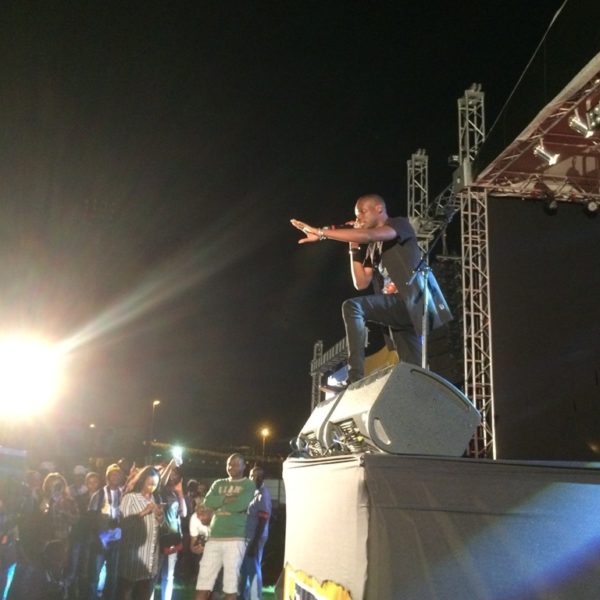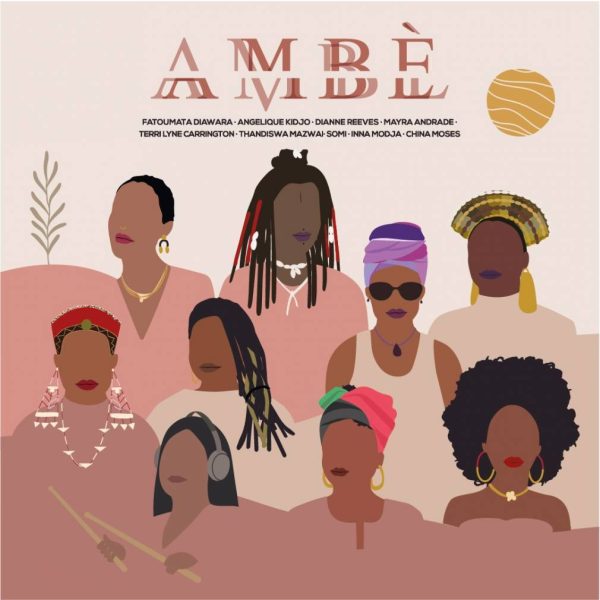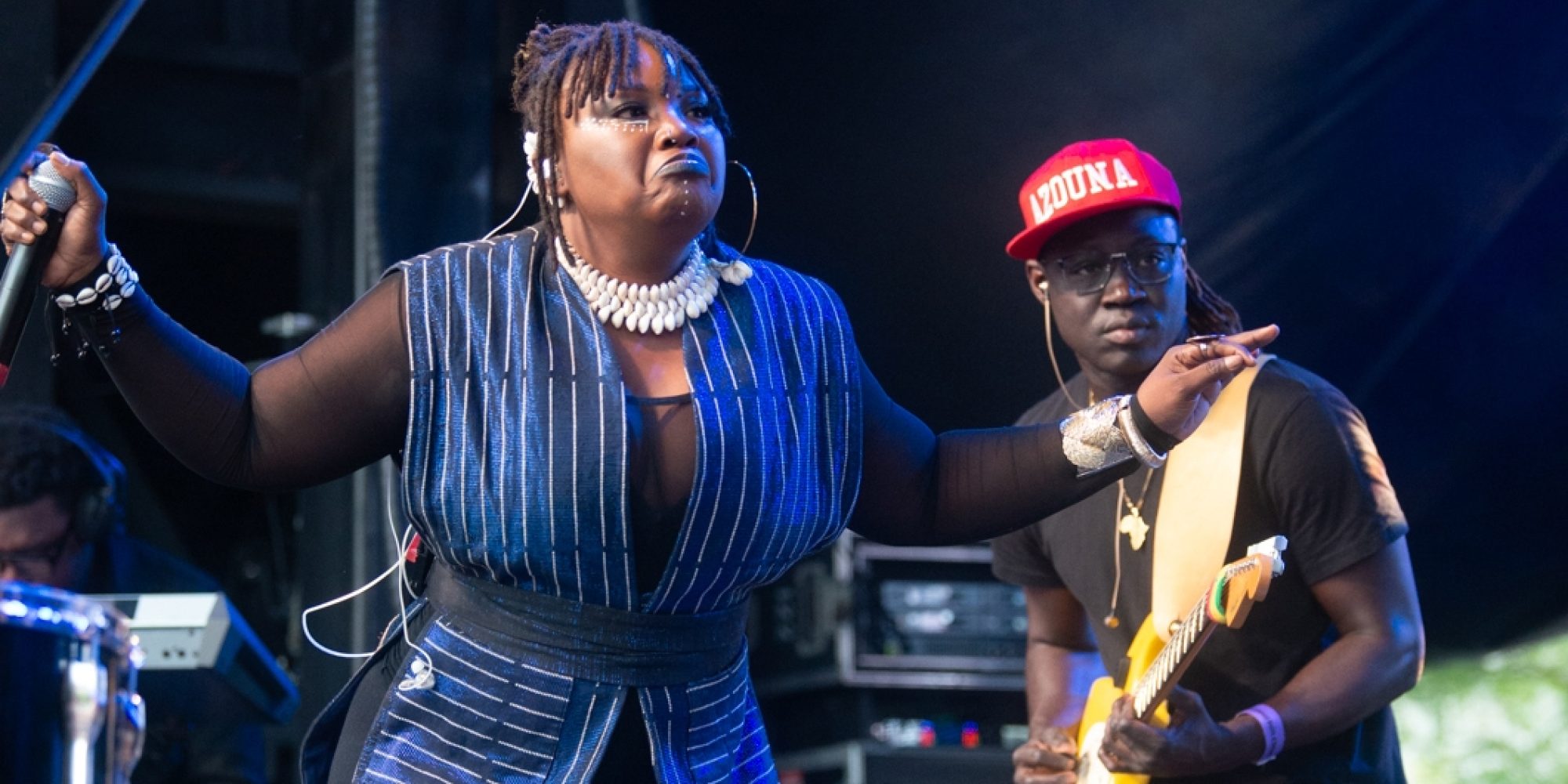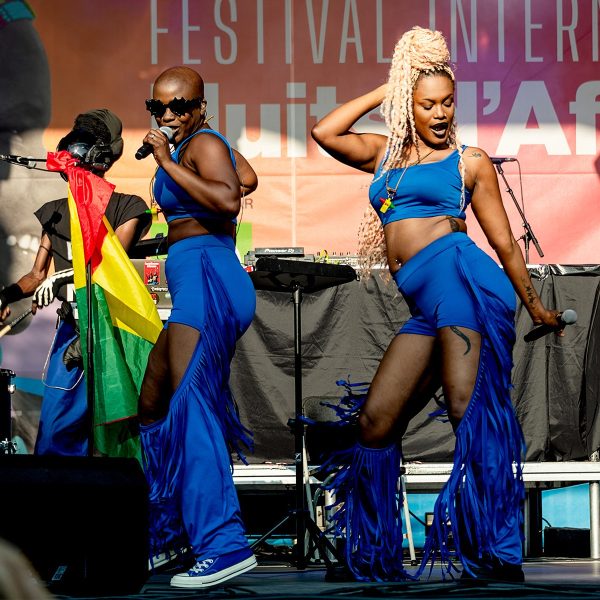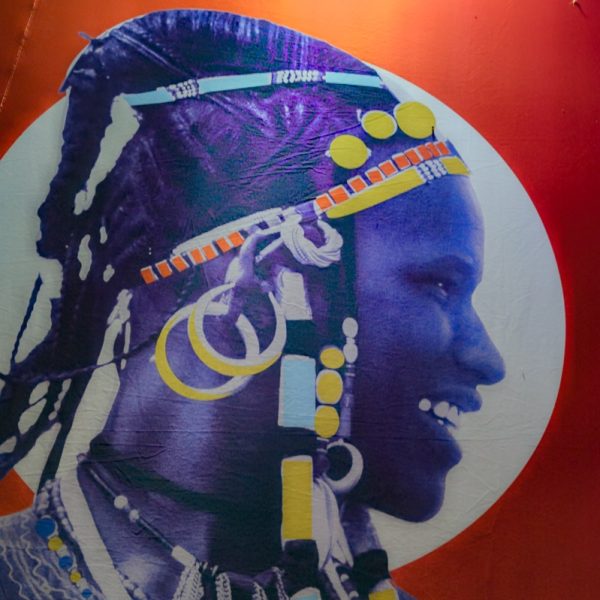At the 2025 Nuits D’Afrique Festival in Montreal, we met old friends and saw well-established stars like Femi Kuti and Meiway. But one of the best things about this festival is the new discoveries we make. A case in point this year was Tyrane Mondeny of Ivory Coast. Her set was simply electrifying. With a powerhouse, blues belter voice a tight, muscular backing band and an athletic stage presence, she had the audience in the palm of her hand from the first note. The day after the set, Afropop’s Banning Eyre sat down with Tyrane to learn more. Here’s their conversation.
Banning Eyre: Good morning. It’s a pleasure to meet you. To start, introduce yourself to our readers.
Tyrane Mondeny: I am an Ivorian artist. I do what is called Soul Mandingo, which is a style of music that I created based on soul music and R&B. I had a background as a cabaret singer and performer. I combine that with the traditional music from my home, which is Mande music. So I call my style of music Soul Mandingo, the fusion of these two styles. I am from the North of Ivory Coast, Koyaka. It is an ethnic group from the northwest of Ivory Coast.
Some years ago, I lived in Mali. I’ve always wanted to go to the Wassoulou Festival in Yanfolila, in southern Mali. I think that’s not far from where you grew up.
Yes. Not far at all.
Have you ever been to that festival?
No, not yet. And it's a dream that haunts me. I hope that one day I'll have the opportunity to be at this magnificent event.
That's true for me too. I think you'll find a good audience there. So tell me your story. How did you become a musician?
How much time do you have?
All you need!
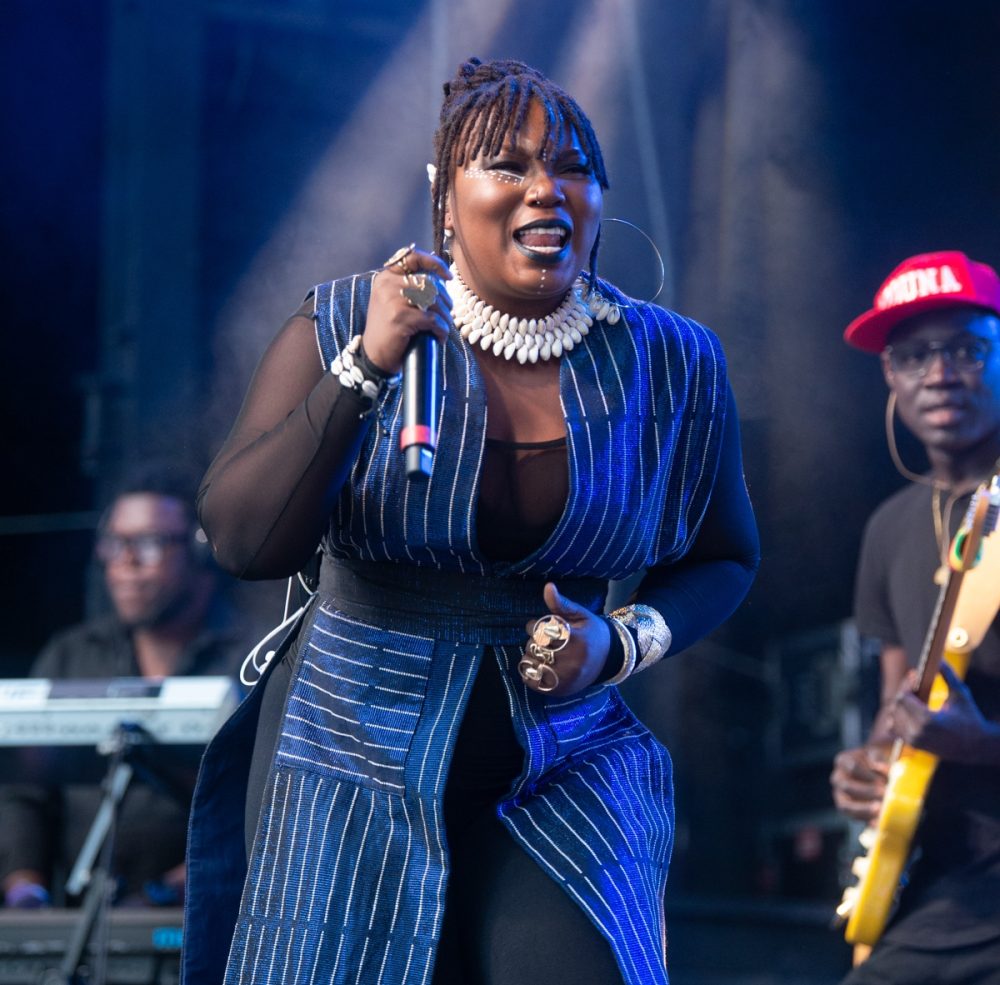
Okay. Well, I started very young as a dancer. I was in traditional dance companies. So, we did dances, singing and theater. Musical comedy.
Was that Ki-Yi Mbock, by chance, the theater group started by Werewere Liking?
I was invited to join Ki-Yi Mbock also, but I started in another company called Diolèmes d'Abidjan, which is just as well-known as Ki-Yi Mbock. I was a dancer there, but then I had to make a choice. I have a little anecdote. There was a gentleman who worked in a cultural center where we danced. He told me, “You dance well, but I think you sing even better and that you should go in that direction and see if you can really evolve.” I took what he said to heart very much, and I started to get more interested in singing. And from there, I started training in cabarets, piano bars. I performed songs by Aretha Franklin, Tina Turner, Anita Baker. But then, over the years, you want to create your own music. But it started from there, in my childhood dream. I was very small, but I had this thirst for art in my soul, and it kept growing and growing and growing.
I heard all that in your show yesterday. You did a slow blues, and I thought it was the real thing. It’s a bit of a mystery to me that more blues singers haven’t made the African connection. Guitarists have.
Ali Farka Toure…
Yes, a hero to many blues guitarists, but not so many singers have gone that way. Well, we can’t forget Bonnie Raitt, Taj Mahal and Cory Harris, but they are exceptions. I’d like to hear some blues singers who can really belt like you do making the connection. We're waiting for that.
For me, the blues is an incredible style of music. In every note that is played, every instrument, whether it's the drums—especially the drums—I have the impression that every movement tells a story of slavery. For me, I think the blues tells a story of slavery. Whether it's the Charleston, which implies the whippings that the slaves received on their backs, or the march with chains on their feet. I don't know, but every time I listen to the blues, I go inside myself, and what it does to me is incredible. I have to externalize it. I can’t play the blues as well as an American, but on the other hand, mixing it with the music from home, I can create something magical. That's why that song, “Fistina,” which is Mandingo blues, touches people every time, and that's the magic of music.
It really works.
[Here’s an excerpt from Tyrane’s set, not the slow blues number, but a good example of her power on stage.]
So where are you living now?
I live in Abidjan, Ivory Coast. I'm just here for Nuits D’Afrique.
Cool. I live in the United States, near New York. And we come here every July for this festival. You know, there are some great artists who live here now. Many play in this festival.
I know. Maybe I'll settle here, maybe one day…
So what is the scene like in Abidjan now?
Well, for all the people have their eyes fixed on music in Ivory Coast, it's very much mainstream music, urban music.
Afrobeats?
Afrobeats. Rap is a bit in vogue. Amapiano, not too much, but it’s there. But for we who make so-called “world music,” we don't really have a platform to express ourselves, to show our music. That's why we mostly turn to festivals outside the country. That's it. We have MASA, the African arts and entertainment market, which tries as best it can to showcase artists like us. But we still need more platforms. Because there are many singers like me in Ivory Coast, but we don't know them. And not all of them have the chance to come to Nuits D’Afrique. So there you go. People need to think about that, to create more platforms for artists like us.
I hear you. I have to tell you. Your bass player is incredible. What a force! Of all the bassists I’ve seen at the festival, he might be the strongest.
Yes. I will tell him. You know, this guy is like my little brother. I've known him for many years and he's the Artistic Director of my band. So you have to know that everything you hear there, 80% of it is his arrangements. He's someone who understands me artistically. He knows where I want to go. He knows exactly what I want. That's why there's this fusion between him and me. And you should know that he's also the bassist of Meiway. Meiway has several bands, depending on what continent he is on.
Will he play with Meiway tonight?
No. It’s not him with Meiway tonight, but in Ivory Coast, he is the bassist for Meiway. He is the one who made the connection between Meiway and me for the song “Hakuna Matata.”
This morning, we did an interview with Meiway. [Stay tuned for that one on afropop.org]. I’ve known his music for a long time, but I've never met him before.
He is a legend.
He is a very charming, kind man. He’s also an old friend of our host Georges Collinet. So you grew up with Meiway’s music.
Oh, yeah. 100% Zoblazo. 300%. He's someone who has always inspired me with his determination. And it must also be said that of all the generation of artists of Meiway’s caliber in Ivory Coast, he is the only one until today who does four hours of concert, non-stop. The gentleman is like a machine; we have the impression that he has two hearts.
He's in good shape and he continues to play sold-out concerts. He did one in Ivory Coast not long ago in the largest venue. It holds 10,000 people. He filled it until there were people outside waiting. For someone of his generation—old school—that's incredible. He inspires me a lot.
Tell me a little about the songs you sang yesterday, the messages, the music, anything.
I am a singer with a message, I am a singer who draws inspiration from her own experiences and the experiences of the people around me to build my music. I was a victim of violence. I was an abused child who lived on the streets, and music saved my life. Music got me out of there and I tell myself that having lived through all that and finding myself on a stage like at Nuits d'Afrique with the people who were there yesterday, I owe it to myself to convey this kind of message. I owe it to myself to give a message of hope to the young people who come after me and make them understand that we can go through all the worst in our lives. When we decide to fight, we can do it. We can start from scratch and become like a superhero. I tell myself, I want to be a legend. I don't want to be just an artist. I want to leave a mark on my generation. That's why in my music, I always try to convey messages, to talk about violence against women, to talk about child abuse, to talk about my parents, who unfortunately aren't here today to see what I've become. But I think they're very proud of me too.
Were those all your compositions in the set last night?
Yes, yes, yes. That's apart from the song I did a acapella, which is a very well-known song in Ivory Coast. But all the other songs are my personal compositions.
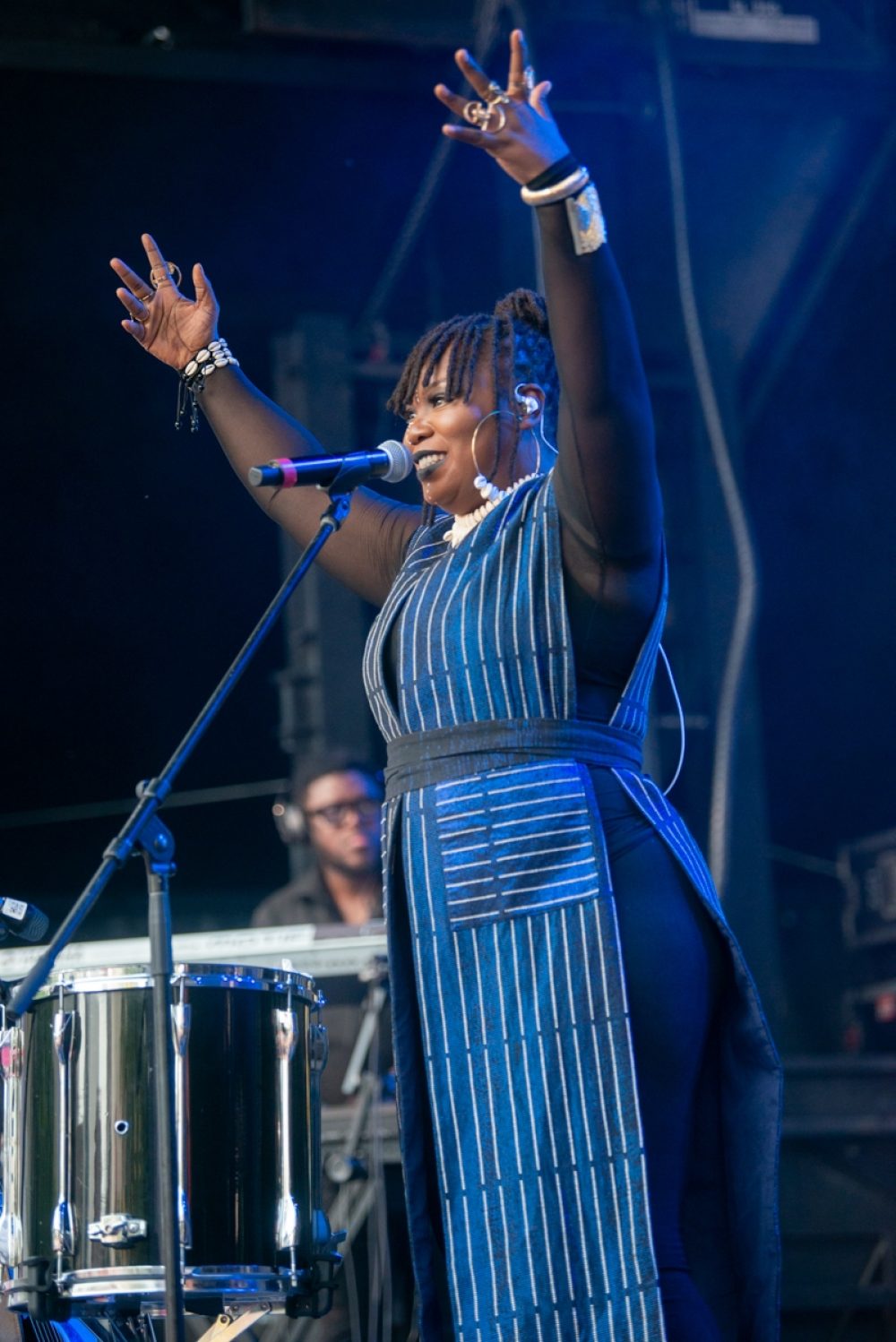
Very good. Now, we know that the world of recording has changed completely. Do you make albums? Singles? Videos? How did you produce your music today?
With a lot of sweat, because being an independent artist is very complicated. It takes a lot of sweat, a lot of resilience. It also takes a lot of financial resources to produce quality projects. So my first album is ready. Until now I had only released singles. My first album will consist of 10 tracks. It will be released very, very soon, I hope.
Can you tell us the title?
Shades of Tyrane. It’s an album that describes all the facets of who I am: the little girl who grew up on the streets, the woman who was abused when she was young, the dancer, the singer, the femme fatale, the legend. It speaks of all the facets of Tyrane.
I can’t wait to hear it.
Ron Deutsch: In your show, you do a lot of stage work. You said you did cabaret. A lot of singers, they're just up there singing, or they have do a little dancing, but you're really working the stage. How did you develop your stage presence?
In fact, when you have the training of live music, I think that's something that goes with it. Being used to performing live allowed me to develop my skills on stage. It's true that many singers come with beautiful voices. They don't necessarily need to make an effort to be noticed. But I tell myself that if I can add something in addition to my voice that will enhance it, that's the most important thing. Being a former dancer, is it impossible for me to be on stage and be static. When you're a dancer, that means you move. You're overflowing with energy. People ask me, “How do you manage to have all that energy on stage?” But that’s the perfect thing about live music, because you're like a bird. You can do whatever you want. I feel like a queen on stage.
So, Tyrane, what else should people know about you?
That I'm a lion on stage.
That's good, and I can attest to it. Thanks so much for speaking with me, and best of luck with the album.
Thank you.
Related Audio Programs
